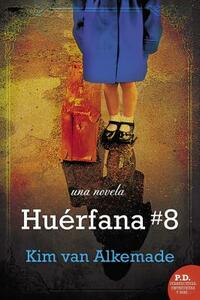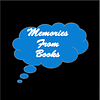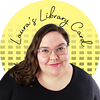Take a photo of a barcode or cover
While I enjoyed this book and the historical perspective it provided, I found myself disappointed in it. The synopsis made me think the story was going to focus on Rachel confronting the doctor who did medical experiments on her, however, this was really only a very brief portion of the story. As a matter of fact, I felt as though the author merely glazed over this aspect of the story and Rachel's life. Instead the story focused more on Rachel's love for another woman and trying to make things right with her.
I appreciated the glimpse into orphan life in the early 1900s and life as a lesbian during that time, but the story itself was not what I was expecting.
I appreciated the glimpse into orphan life in the early 1900s and life as a lesbian during that time, but the story itself was not what I was expecting.
This book went down easily. It's a great story, and well-written. Still, I found it dissatisfying. It raises many moral and ethical questions, but it doesn't provide much depth. Even the most striking passage in the book, which describes how the main character had judged her brother for his cold-blooded execution of Nazis during WW2 and parallels it with her own plan to kill the doctor who experimented on her as a child, does not satisfy. We see the parallel, but we don't know if she does. Even if she does, it is just a recognition of common humanity, and perhaps a sense that she can no longer judge him as wrong for that.
There is no basis for determining what is right and what is wrong, except for what feels right.
If readers would be interested in a book that also explores injustice, suffering, and vengeance, but in a much deeper and ultimately more satisfying way, I recommend Michael O'Brien's Island of the World.
There is no basis for determining what is right and what is wrong, except for what feels right.
If readers would be interested in a book that also explores injustice, suffering, and vengeance, but in a much deeper and ultimately more satisfying way, I recommend Michael O'Brien's Island of the World.
A lot of people recommended this book but I found it underwhelming. It did move along at a decent pace, and the back and forth between time periods was done well, it's just that the major plot didn't seem based on her being medically abused as a young child and her relationship with the person who did it as much as just her life in general.
I used to think that orphaned was something I'd been as a child and since outgrown.
A novel about an orphaned woman coming to terms with the consequences of experiments that were done on her as a child in an orphanage. Told in two timelines; one as she's growing up within the orphanage in the 1920s, and the other as she's a nurse working in a home in the years post WWII. This is a hard one to rate, because the things I liked about this book, I really liked, and the things I disliked, I really disliked.
(But overall, I liked it.)
- Extremely historically rich. A lot of research went into this book and it really shows in the setting and the characters. I loved all the details of routines in the orphanage, the mundane lives of Jewish immigrants from all walks of life, Rachel's job as a nurse, all put into their historical milieu.
- It wasn't the main plot of the book but the novel really dug deep into what it meant to be Jewish in both those eras, especially post-WWII, and how life felt like that soon after a global trauma. I went back and forth on Sam, but I still loved his character so much. The most moving portion of the book is when he tells Rachel about liberating Dachau, and making the decision to go to Palestine. And in general, there was a lot to be said about community and found families and mitzvahs that I really really loved.
- The romance in this is incredibly sweet. I'm very weak for friends to lovers, and the particular setup of this was very *chef's kiss*. It also does what I love in queer historical fiction, which is to NOT ignore the hardship of the issue, the particular kind of invisibility and discrimination that Rachel faces, the yearning that she feels for companionship and someone like her... I liked it a lot! Also their scene in the final chapter was so lovely and I need to quote from it: There is a place where the roof of a cave becomes the floor of a sea, yielding, yet rough. She found it. I imagined myself a mounted butterfly, wings flapping open and closed, pushing against the pin that fixed me.
- I wasn't the biggest fan of this author's style of writing, but some passages, like the above, were really beautiful. She wrote best when she wrote simply, and honestly the latter parts of the book seemed so much more polished.
- I also think that Rachel's character and writing could have used more work but I loved her a lot. The author got the single-minded, naive selfishness of being a lonely teenager, and the weary, angry indignation of a wronged adult, who knows she deserves contrition, but gets none. There were a couple times some of Rachel's internal monologue surprised me, because it was so far from what a 'typical' women's fiction character might have said or thought in a similar moment? And I really liked that.
The bad!
- Omniscient POV. It's subjective but I hate it. Head-hopping is my least favourite thing. I hate when in third person, someone says something shocking or thought provoking or whatever, and I'm thinking 'huh, I wonder what X thinks of that' and the author IMMEDIATELY jumps us into X's head to let us know. There was so much of that, and I think it's bad. I enjoyed the 1950s chapters more because I liked Rachel more as an adult, and I like the themes the time period brought up, but honestly I mostly liked them because they were written in first person, and I didn't have to deal with the third person omniscient that the author chose for the 1920s chapters. I just... really didn't like this style, and it depleted my enjoyment a lot in the beginning. Just... so much TELLING.
- Too much repetition. I think it was supposed to be stylistic? Didn't work out that way alas.
- A thousand little plot-holes. A lot of things fell into place too neatly and too conveniently.
- Just... the way the story was told. I don't know, maybe it should have been blurbed differently? But there's something about the fact that... we knew going on that Rachel would have this conflict with the doctor from the orphanage. And what feels like almost immediately, we know about her cancer and the fact that she's thinking about getting revenge on Dr. Solomon. Idk if I'm describing this well but... nothing about the sequence of events was... unseen? Things that were written like huge moments or big plot twists were just kind of expected and not surprising. Going through supposedly high-tension parts of this book felt like a big whomp whomp.
IDK.
I'm giving this a very strong 3.5 stars, because I like the concept, and the plot, and all the history that went into it (the author's notes at the end are really interesting!). But the execution left something to be desired.
A novel about an orphaned woman coming to terms with the consequences of experiments that were done on her as a child in an orphanage. Told in two timelines; one as she's growing up within the orphanage in the 1920s, and the other as she's a nurse working in a home in the years post WWII. This is a hard one to rate, because the things I liked about this book, I really liked, and the things I disliked, I really disliked.
(But overall, I liked it.)
Spoiler
The good!- Extremely historically rich. A lot of research went into this book and it really shows in the setting and the characters. I loved all the details of routines in the orphanage, the mundane lives of Jewish immigrants from all walks of life, Rachel's job as a nurse, all put into their historical milieu.
- It wasn't the main plot of the book but the novel really dug deep into what it meant to be Jewish in both those eras, especially post-WWII, and how life felt like that soon after a global trauma. I went back and forth on Sam, but I still loved his character so much. The most moving portion of the book is when he tells Rachel about liberating Dachau, and making the decision to go to Palestine. And in general, there was a lot to be said about community and found families and mitzvahs that I really really loved.
- The romance in this is incredibly sweet. I'm very weak for friends to lovers, and the particular setup of this was very *chef's kiss*. It also does what I love in queer historical fiction, which is to NOT ignore the hardship of the issue, the particular kind of invisibility and discrimination that Rachel faces, the yearning that she feels for companionship and someone like her... I liked it a lot! Also their scene in the final chapter was so lovely and I need to quote from it: There is a place where the roof of a cave becomes the floor of a sea, yielding, yet rough. She found it. I imagined myself a mounted butterfly, wings flapping open and closed, pushing against the pin that fixed me.
- I wasn't the biggest fan of this author's style of writing, but some passages, like the above, were really beautiful. She wrote best when she wrote simply, and honestly the latter parts of the book seemed so much more polished.
- I also think that Rachel's character and writing could have used more work but I loved her a lot. The author got the single-minded, naive selfishness of being a lonely teenager, and the weary, angry indignation of a wronged adult, who knows she deserves contrition, but gets none. There were a couple times some of Rachel's internal monologue surprised me, because it was so far from what a 'typical' women's fiction character might have said or thought in a similar moment? And I really liked that.
The bad!
- Omniscient POV. It's subjective but I hate it. Head-hopping is my least favourite thing. I hate when in third person, someone says something shocking or thought provoking or whatever, and I'm thinking 'huh, I wonder what X thinks of that' and the author IMMEDIATELY jumps us into X's head to let us know. There was so much of that, and I think it's bad. I enjoyed the 1950s chapters more because I liked Rachel more as an adult, and I like the themes the time period brought up, but honestly I mostly liked them because they were written in first person, and I didn't have to deal with the third person omniscient that the author chose for the 1920s chapters. I just... really didn't like this style, and it depleted my enjoyment a lot in the beginning. Just... so much TELLING.
- Too much repetition. I think it was supposed to be stylistic? Didn't work out that way alas.
- A thousand little plot-holes. A lot of things fell into place too neatly and too conveniently.
- Just... the way the story was told. I don't know, maybe it should have been blurbed differently? But there's something about the fact that... we knew going on that Rachel would have this conflict with the doctor from the orphanage. And what feels like almost immediately, we know about her cancer and the fact that she's thinking about getting revenge on Dr. Solomon. Idk if I'm describing this well but... nothing about the sequence of events was... unseen? Things that were written like huge moments or big plot twists were just kind of expected and not surprising. Going through supposedly high-tension parts of this book felt like a big whomp whomp.
IDK.
I'm giving this a very strong 3.5 stars, because I like the concept, and the plot, and all the history that went into it (the author's notes at the end are really interesting!). But the execution left something to be desired.
Wonderful audiobook. I'd say more like 4.5 stars but gave it the tilt to 5.
Orphan #8, the debut novel by Kim van Alkemade, illuminates horrific history about the use of orphaned children in scientific experiments. Through the eyes of Rachel Rabinowitz, the book documents the physical and emotional scars these children carried the rest of their lives. While I did not love the book, I do honor and respect the history documented in this book. May these children always be remembered.
Read my complete review at: http://www.memoriesfrombooks.com/2015/08/orphan-8.html
Reviewed for LibraryThing Early Reviewers program
Read my complete review at: http://www.memoriesfrombooks.com/2015/08/orphan-8.html
Reviewed for LibraryThing Early Reviewers program
This book was very anticlimactic. Plain and simple. It's well written but ends with a fizzle. Wouldn't recommend it.
I really enjoy stories that entwine parts of our history with fiction. It actually makes history easier to remember when you make it personal and focus on the lives of a few characters during actual moments in our world's history. The author had a great writing style and once I learned that we transitioned between the main character's past and her present it was really easy to follow.
emotional
sad
medium-paced
Plot or Character Driven:
A mix
Strong character development:
Yes
Loveable characters:
Yes
Diverse cast of characters:
Yes
Flaws of characters a main focus:
Complicated
I skimmed last ~40% to finish before book club, was okay with that decision.
I identified with Rachel much more when it was in first person when she was an adult, and I was moved by her emotions and turmoil. I had a hard time connecting to the third person story of Rachel's life, and there were big chunks of it I didn't have any interest in (like the entire out West parts...).
Was frustrated by brother Sam, thought that he was so compassionate as a young boy but then was almost eager to get away from the responsibility of Rachel later.
Was also frustrated that the portrayal of the Doctor was SO unsympathetic. I felt like she would have had to be a sociopath to not be able to feel anything at all for Rachel, who was so willing to forgive her if she would only say that she was sorry for how things turned out in Rachel's life.
I identified with Rachel much more when it was in first person when she was an adult, and I was moved by her emotions and turmoil. I had a hard time connecting to the third person story of Rachel's life, and there were big chunks of it I didn't have any interest in (like the entire out West parts...).
Was frustrated by brother Sam, thought that he was so compassionate as a young boy but then was almost eager to get away from the responsibility of Rachel later.
Was also frustrated that the portrayal of the Doctor was SO unsympathetic. I felt like she would have had to be a sociopath to not be able to feel anything at all for Rachel, who was so willing to forgive her if she would only say that she was sorry for how things turned out in Rachel's life.






